
Richard Spurr 1am - 4am
18 September 2023, 11:09 | Updated: 18 September 2023, 12:58
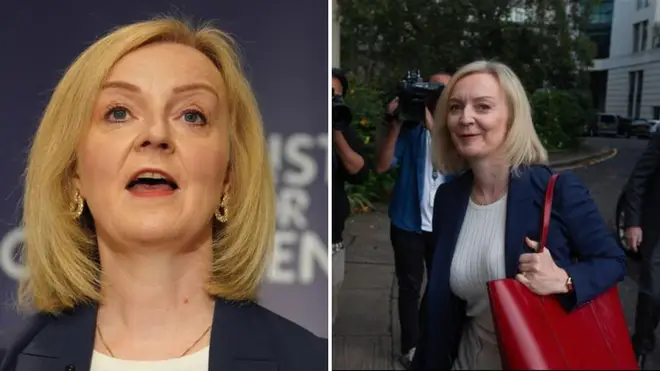
Liz Truss has refused to say sorry to mortgage holders and denied the claim she "crashed the economy" with her mini-budget last year.
Ms Truss delivered her speech at the Institute for Government on Monday in her first major intervention since stepping down last autumn.
The former Prime Minister and Chancellor Kwasi Kwarteng sent markets around the world into turmoil with their mini-budget last September. The mini-budget included £45bn of unfunded tax cuts, and was followed by a fall in the value of the pound and rising mortgage rates.
She soon sacked Mr Kwarteng and then resigned to become the shortest serving prime minister of all time.
Mortgage rates rose sharply in the aftermath, but Ms Truss said on Monday that they were going up anyway.
Asked after the speech if she wanted to apologise for the mini-budget, she said: "I think the political failure was to tell people that the rates have been artificially too low for too long.

James O'Brien reacts to ex-PM Liz Truss' speech on economic growth
"In fact, the rates have gone higher since the mini-budget."
Ms Truss also denied that she had "crashed the economy". Asked about her legacy, she said: "I do want to challenge this phrase 'crashed the economy.'
"The fact is that since I left office both mortgage rates and gilt rates have gone higher than they were at the time of the mini-budget.
"So I do think you are repeating a line to take from the Labour Party when you say that."
The former Prime Minister said earlier in her speech on Monday: "Some people said we were in too much of a rush. And it is certainly true that I didn’t just try to fatten the pig on market day; I tried to rear the pig and slaughter it as well. I confess to that.
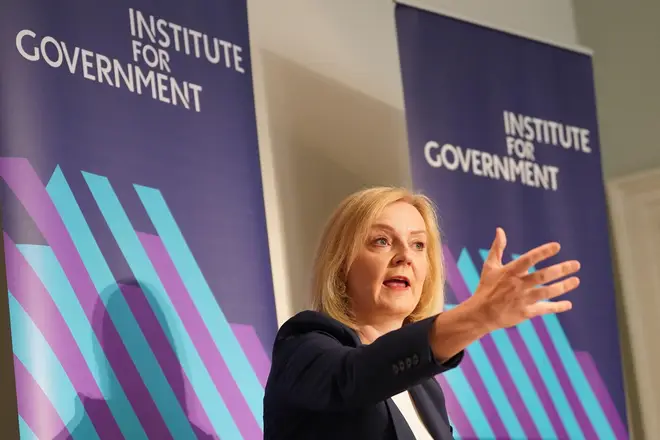
“But the reason we were in a rush was because voters wanted to see results, having already voted for change twice – in 2016 and 2019. I knew with the level of resistance and the lack of preparation time that things weren’t going to be perfect.
"However, given the situation for the UK was so difficult, it was important to take action and not do nothing. I went into politics to get things done, not to do public relations.
“And to the people who say that if we had delayed things or spent more time rolling the pitch, it would have worked – I ask them to look at what has happened since.
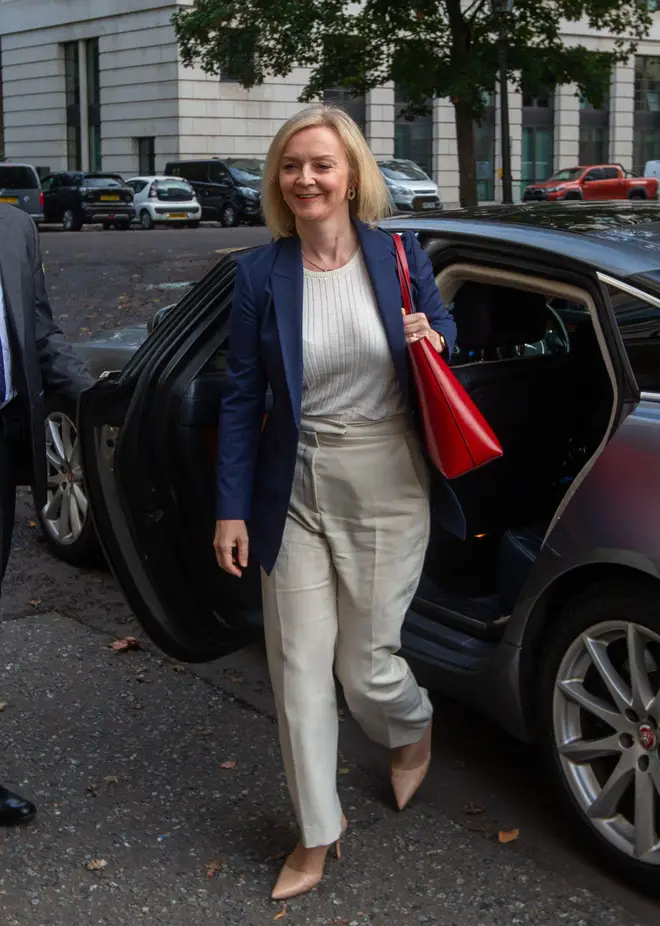
"By October 7th the OBR were already leaking their calculations that there was a £70 billion hole in the budget – these numbers of course subsequently proved to be wrong – but that leak would have made delivery of the Corporation Tax freeze untenable.
"And since last year no major supply side reforms or tax cuts have been allowed to happen – whether it is financial services, childcare, planning or on the environment. In fact, 150 Conservative MPs have written to the Prime Minister saying there should be no change to Net Zero legislation."
Ms Truss said of her mini-budget: "Some people have described these as 'unfunded tax cuts'. This is not a fair or accurate description.
"Independent calculations by the CEBR suggest that cutting the higher rate of income tax and the 'tourist tax' would have increased rather than decreased revenues within five years.
"So quite the opposite of being unfunded, these tax cuts could have increased funding for our public services."
Responding to a question after the speech, Ms Truss said the tax cuts were "not major", but would have made a "fairly marginal difference to the level of the deficit".
She also said it was a mistake for her predecessor Boris Johnson to vacate Downing Street.
"What people are frustrated about is costs have gone up and their income hasn't gone up," she said."That has been the case for some time."
She added: "I didn't support getting rid of Boris and I think it was a mistake by the Conservative Party"
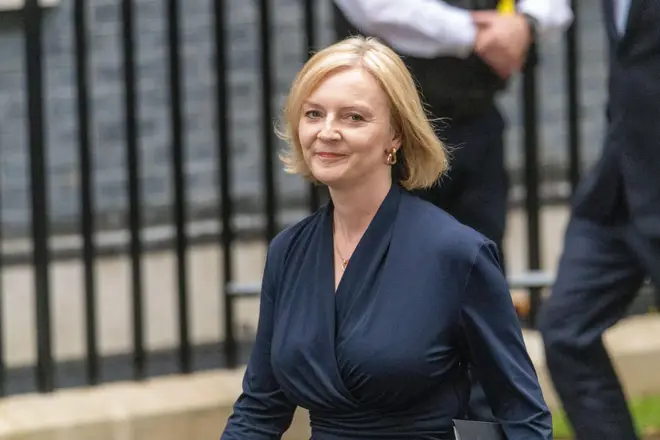
Ms Truss used her speech to call on the government to break from "25 years of economic consensus" to escape the "period of stagnation.
She said: "I believe it is vital that we understand that and shatter that economic consensus, if we are to avoid worse problems in the future."
Ms Truss also called for the government to cut corporation tax to 19%, adding: "We should also refuse to implement the OECD minimum tax agreement, which I have previously labelled a ‘cartel of complacency’... We also need to reduce marginal tax rates to make it worthwhile to work at every income level. Further changes like abolishing the tourist tax, abolishing the Windfall Tax and IR35 need to be made.
"We need to get a grip on the ballooning welfare and pensions bill. This means slowing the rate of increases to benefits and tougher work requirements. It also means raising the retirement age further.”
"We should – as many other Western countries are already doing – delay implementing Net Zero commitments such as the ban on new petrol and diesel vehicles from 2030. Other environmental regulations which are hiking the cost of living like enforcing the replacement of gas and oil boilers should also be abandoned."
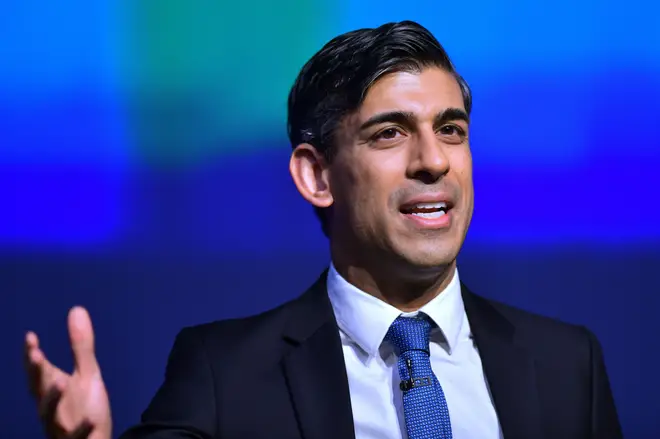
She claimed Mr Sunak's Government has spent £35 billion more than she would have as prime minister, arguing that if the policies included in her growth plan had been followed, growth would have eventually been higher.
"Investment would not have faltered in the North Sea, were it not for the windfall tax," she will say. "We would have got moving on fracking and lower energy bills would now be on the horizon.


'Shamelessness': Sangita Myska reacts to Liz Truss claiming Trussonomics would have worked
"A more competitive rate of corporation tax would have persuaded the likes of AstraZeneca not to relocate elsewhere. There would have been more duty-free shoppers and a boom in the number of self-employed."
Opposition parties mocked the former prime minister ahead of the address, with Labour using the approaching anniversary of the mini-budget to call on Mr Sunak to block her resignation honours.

Lord Mervyn King: The economic consequences of Liz Truss' premiership 'weren't that bad'
Ms Truss said that free market advocates took their eye off the ball after the 1980s.
"Free market economists went off to lucrative jobs in the City, allowing academic institutions and think-tanks to be captured by the left."
She added: "We Conservatives allowed the debate to be framed and led by the left. Whether it’s the anti-capitalist arguments of the Occupy movement, the woke diversity policies or the statist environmental solutions, the left have been making the running. We’ve seen that, regardless of which government has been in power.
"From the energy price cap to the 2050 Climate Change target to the ESG agenda in companies, there has been a cultural shift across both business and the public sector… Politicians assumed that the good times would go on forever.
"The discussion was about ‘sharing the proceeds of growth’ and talking about happiness and ‘General Well Being’ rather than GDP. The only question seemed to be how to distribute the pie, not how to ensure we had a bigger pie to share out."
Ms Truss repeated her attack on the so-called "anti-growth coalition", and argued that her plan was not implemented due to a reaction from "the political and economic establishment which fed into the markets".
Hitting out at 25 years of "economic consensus", she will say: "The anti-growth coalition is now a powerful force comprising the economic and political elite, corporatists, parts of the media and even a section of the Conservative parliamentary party.
"The policies I advocate simply aren't fashionable on the London dinner party circuit."
Chancellor Jeremy Hunt is currently preparing for the Autumn Statement, but tax cuts have repeatedly been ruled out while inflation remains high.
Ms Truss will take specific aim at US President Joe Biden's landmark green subsidy push the Inflation Reduction Act, warning the West "cannot keep borrowing forever".
Ahead of the speech, Labour frontbencher Jonathan Ashworth wrote to the Prime Minister calling on him to block Ms Truss's yet-to-be published resignation honours list.
In the letter to Mr Sunak, he said: "Families and business across Britain are still paying (the) price for the Conservative Party crashing the economy and leaving working people worse, with higher taxes, higher mortgages and higher food and energy bills.
"Despite this, it has been widely reported that Liz Truss has submitted up to 14 people to receive resignation honours.
"This means that those who crashed the economy, who left millions to pay more for their mortgage and who undermined our economic institutions could receive an award.
"I urge you to block these honours."
Liberal Democrat deputy leader Daisy Cooper mocked Ms Truss.
She said: "Liz Truss giving a speech on economic growth is like an arsonist giving a talk on fire safety."